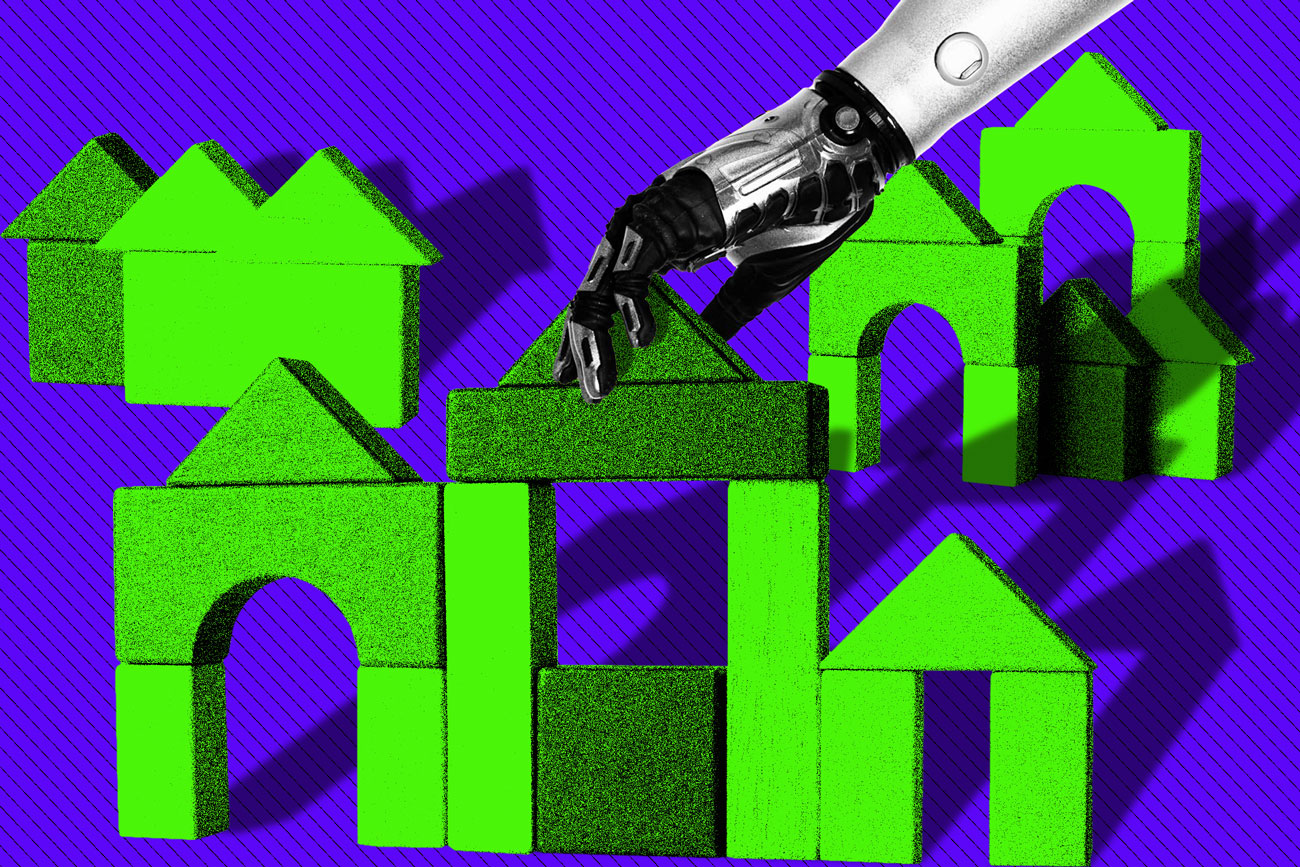Friend or foe? Home-buying bots enter real estate market
IBuyers are one of the few true innovations to hit the real estate industry in recent years. Yet consumers haven't fully embraced them because of misconceptions about how iBuyers work, and what types of problems they resolve for sellers and buyers.
An iBuyer (for "instant buyer") is a company that uses technology and real estate data to make an automated offer on a home. After buying the house, the company fixes what's broken, makes cosmetic repairs and sells it. IBuyers market themselves as a fast, convenient way to sell.
Myths have grown around iBuyers: that they pay too little, inflate home prices and funnel owner-occupied homes to investors. A couple of those myths do have a grain of truth. Here's what's really going on with iBuyers.
Myth 1: iBuyers lowball homeowners
In a TikTok that went viral in September, a real estate agent implied that an iBuyer was manipulating house prices. In his hypothesis, the scheme was a two-stage process. The first step consisted of lowballing home sellers.
But iBuyers don't pay significantly less than the market price, said Mike DelPrete, a real estate tech strategist and scholar in residence at the University of Colorado at Boulder. "The biggest potential misconception is that iBuyers are gonna rip you off, and they're gonna give you a lowball offer and you're leaving money on the table," DelPrete told the personal finance website NerdWallet.
This misunderstanding may grow out of a belief that iBuyers are the same as house flippers. There's a difference. Flippers buy properties that need lots of work to get them in salable condition. They buy low, spend plenty on renovations and make a profit on the difference between the amount invested and their sale price. But iBuyers buy properties that are in good shape, usually make minor repairs and make much of their profit from fees they charge to sellers. (The eventual price an iBuyer pays is the accepted offer minus the renovation costs.)
DelPrete has researched prices paid by iBuyers. In 2019, iBuyers were paying about 98.5% of estimated market value; at times in 2021, they were overpaying. In contrast, house flippers often pay about 70% of value.
Yes, iBuyers often pay less than buyers would get by listing conventionally. But not a lot less, and some sellers believe iBuyers are worth the financial trade-off for a quick sale and the convenience of not opening the house to a parade of strangers.
Myth 2: iBuyers are the reason houses are expensive
As the TikToker described it, the second step of the "price manipulation" would consist of the iBuyer overpaying for one home after underpaying for dozens of other homes in a neighborhood. This, the theory goes, would set a precedent for higher prices that appraisers and subsequent buyers would follow.
This hypothesis disregards human nature: When you buy a home, you'll ignore the price paid by the only buyer who overpaid. You'll pay attention to the prices that are consistent with fair market value.
Deliberately overpaying for homes would be a disastrous strategy. In fact, Zillow Offers, the company's iBuying division, acknowledges that it unintentionally paid too much for houses, based on faulty forecasts of future prices. Zillow lost hundreds of millions of dollars in the third quarter of 2021, laid off a quarter of its workforce and shuttered Zillow Offers.
Mariya Letdin, associate professor of real estate at Florida State University, told NerdWallet she sees "a few ideas floating around. One is a concern that big tech will use their informational advantage to take advantage of the individual sellers. Another is that somehow iBuyers will drive up home prices. None of these are supported by evidence."
For iBuyers to push prices artificially high, they would need to control a big chunk of the market, and they seldom do. According to DelPrete's research, iBuyers accounted for 1.6% of U.S. homes bought in the third quarter, or around 28,000. IBuyers are busier in some markets than others, though. They bought 10.8% of the homes purchased in the Phoenix metro area in the third quarter.
Myth 3: iBuyers sell lots of homes to landlords
There's some truth to this belief, so it's more exaggeration than myth. Most (not all) iBuyers sell a portion of their inventory to institutional investors that rent the homes out.
Take Zillow Offers. After it shut down, Bloomberg reported that Zillow planned to sell 7,000 houses to corporate investors such as real estate investment trusts, or REITs. One critic tweeted, "I strongly suspect selling 7k homes to institutional investors will hurt consumers (especially after driving up prices significantly in key markets)."
It's a bummer that the mass sale to corporate landlords will shut out 7,000 would-be owner-occupants, but the evidence that Zillow drove up prices for anyone but Zillow is weak. Of the three biggest remaining iBuyers, two said they sell to investors and one said it doesn't.
An Offerpad spokesman told NerdWallet in an email that the company typically sells 10% to 20% of its homes to institutional investors. Opendoor's head of real estate, Kerry Melcher, didn't give percentages, but said in an email: "Some homes we purchase are resold to REITs; the vast majority are put back on the market and go to everyday consumers."
RedfinNow says it is an exception. "We haven't sold one house to a REIT," said Jason Aleem, RedfinNow vice president.
Value of an iBuyer offer
IBuyers don't lowball, they're not responsible for runaway house prices, and they sell most of their inventory to owner-occupants and only some to landlords. They're not a diabolical force in the housing market, but what good do they do?
They can help home sellers set asking prices. It's one thing to view an online estimate of your home's value when you're bored. It's another thing to receive an iBuyer's purchase offer.
"It makes those estimates real," Aleem said. He explains that getting an iBuyer offer can establish a baseline asking price even if you ultimately decide not to take it and opt for a traditional home listing instead.
Another benefit: No living in limbo
More substantively, selling to an iBuyer appeals to homeowners who prize convenience, need to sell quickly, and want to be certain that the buyer will consummate the transaction and not flake out.
IBuyers are especially attractive to sellers who hate showing their homes to potential buyers. If you've ever sold a home, you know the drill: You keep a tidy house, and then you have to go somewhere while strangers tromp through the place and judge your housekeeping proficiency.
The hassle is even worse if you have young children or pets or both, because their messes are messier, their smells are smellier, and it takes planning to find a place to take them during the showing.
With an iBuyer, there are no showings, back-and-forth negotiations, buyer contingencies or last-minute changes to closing dates.
The convenience and speed offered by iBuyers mean they are here to stay. They won't serve more than a small subset of home sellers, but they'll occupy a niche, particularly in growing Sunbelt cities with large developments of newish, look-alike homes with similar values.
Understanding what iBuyers do — and what situations they can address — adds to your real estate toolbox, whether you're selling or buying.
This article originally appeared on the personal finance website NerdWallet.



